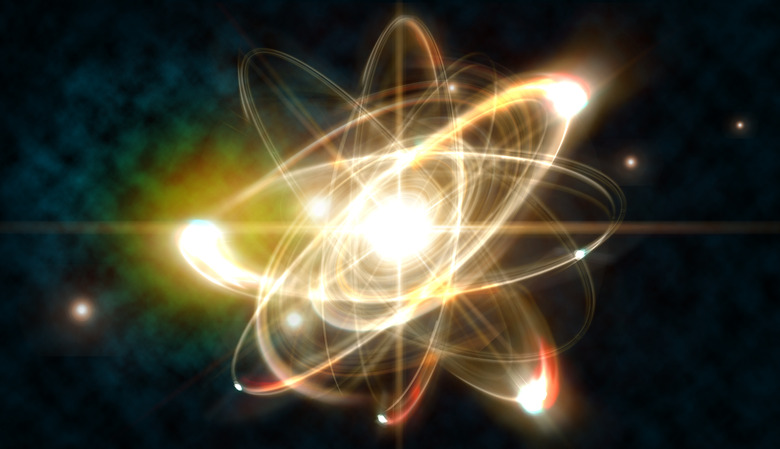What Is An Atom?
Did you know that everything in the universe is made of matter, and all atoms are pieces of matter? So, anything you can touch is made of atoms, even your body. You can learn all about atoms in chemistry.
What Is an Atom in Chemistry?
What Is an Atom in Chemistry?
In the world of chemistry, an atom is matter, which makes up everything that is tangible (items you can touch) in the world. One important property of an atom is that it can't be broken down any further with any type of chemical means because it is in its simplest form.
What Are the Parts of an Atom?
What Are the Parts of an Atom?
An atom has three types of very tiny particles called protons, neutrons and electrons. The center of an atom is called the nucleus, and it is made up of protons and neutrons. The electrons in an atom fly around and above the nucleus in a cloud-like formation. The protons have a positive charge, and the electrons have a negative charge. In a normal or neutral atom, the number of protons and electrons are equal. Many times but not always, the number of neutrons in a neutral atom is the same also.
How Big Is an Atom?
How Big Is an Atom?
Atoms have great variations in weight, although they are all about the same size. The diameter of an atom is a million times smaller than one strand of thick human hair, very tiny indeed. The diameters of atoms range from approximately 0.1 to 0.5 nanometers.
For example, plutonium, which is one of the heaviest elements, weighs more than 200 times as much as the lightest element of hydrogen. The diameter of a plutonium atom is only approximately three times the diameter of a hydrogen atom.
What Are Some Examples of Atoms?
What Are Some Examples of Atoms?
The periodic table of elements lists all the atoms that are currently known and available. Being that the elements are the most basic and simplified form of any substance, all elements are atoms. Some examples are helium, oxygen and hydrogen.
What Is Not an Atom?
What Is Not an Atom?
If any matter is smaller or larger than an atom, it is not an atom. Molecules and compounds may contain atoms, but they are not atoms themselves. Some examples of molecules and compounds are salt water (NaCl) and ethanol.
Electrically charged atoms that conduct electricity are called ions, but they are still considered atoms. Monotomic ions that include O2 and H+ are considered atoms.
Cite This Article
MLA
Lougee, Mary. "What Is An Atom?" sciencing.com, https://www.sciencing.com/what-is-an-atom-13712448/. 15 May 2018.
APA
Lougee, Mary. (2018, May 15). What Is An Atom?. sciencing.com. Retrieved from https://www.sciencing.com/what-is-an-atom-13712448/
Chicago
Lougee, Mary. What Is An Atom? last modified March 24, 2022. https://www.sciencing.com/what-is-an-atom-13712448/
